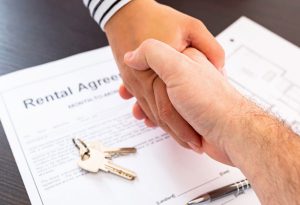Last month the IRS issued the final regulations regarding Section 199A. The IRS also issued IRS Notice 2019-07 which set forth a safe harbor under which a rental real estate enterprise would be treated as a trade or business under Section 199A. The purpose of the Notice is to give taxpayers guidelines as to the application of the 199A deduction for rental real estate properties.
 To qualify for the safe harbor requirements, the taxpayer must meet the following requirements:
To qualify for the safe harbor requirements, the taxpayer must meet the following requirements:
- Keep separate books and records setting out the income and expenses for the rental real estate enterprise;
- For tax years beginning prior to January 1, 2023, perform 250 or more hours of rental services per year with respect to the rental real estate enterprise;
- The taxpayer must maintain records, including time reports, logs, or similar documents, regarding the following:
- Hours of all services performed;
- Description of all services performed;
- Dates on which such services were performed; and
- Who performed the services.
The following rental services qualify:
- Advertising to lease the real estate;
- Negotiating and executing leases;
- Verifying information on tenant lease applications;
- Collection of rent;
- Daily operation, maintenance, and repair of the real estate;
- Management of the real estate;
- Purchase of materials;
- Supervision of employees and independent contractors.
The above rental services can be performed by the owner, an employee, agents or independent contractors of the owners.
The notice further sets out the following rental services which cannot be counted toward the 250-hour requirement:
- Arranging financing;
- Procuring property;
- Studying and reviewing financial statements or reports on operations;
- Planning, managing, or constructing long-term capital improvements;
- Hours spent traveling to and from the real estate.
The notice further states that real estate used by the taxpayer as a residence for any part of the year or real estate rented or leased under a triple net lease are excluded from the safe harbor protection.
If a taxpayer is able to meet the safe harbor requirements, the income will qualify as arising from a qualified trade or business allowing the taxpayer to qualify for the qualified business income deduction on their tax return.
If you have questions or need additional information about the Safe Harbor for Real Estate tax law changes, please reach out to us at our office by calling 515-225-1100 or go to our Contact Us page to send us a message and we’ll reply as soon as possible.